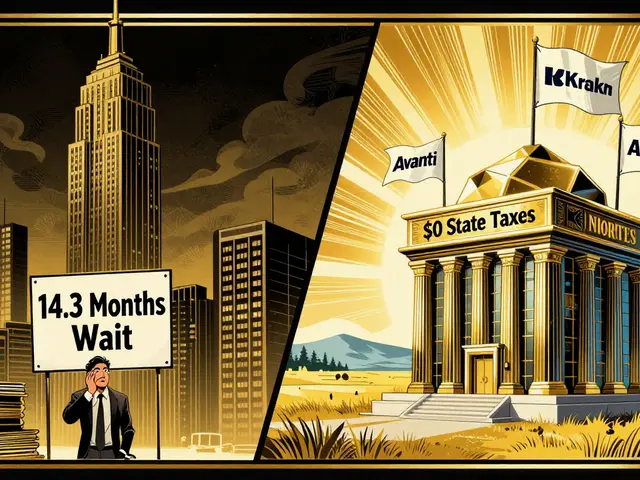CFTC Crypto: What the Commission Does and How It Shapes Your Trades
When you trade crypto in the U.S., the CFTC, the U.S. Commodity Futures Trading Commission, a federal agency that regulates derivatives markets including crypto futures and options. Also known as the Commodity Futures Trading Commission, it’s the agency that steps in when exchanges go too far—like when they offer unregistered token sales or fail to verify users. This isn’t about banning crypto. It’s about making sure the market doesn’t become a free-for-all where scams thrive and traders get burned.
The CFTC doesn’t just watch exchanges. It goes after projects that sell futures without a license, like the $1.5 billion case against Binance in 2023. It’s also the reason why platforms like Bybit and Kraken had to change how they handle U.S. customers. You’ll find posts here about SEC fines, but the CFTC operates differently—it cares about commodities, not securities. That means if a token acts like a futures contract (like ETH futures on Deribit), the CFTC claims jurisdiction. It’s why you see more enforcement on derivatives platforms than on simple spot exchanges.
And it’s not just big players. The CFTC has gone after meme coins that were structured as leveraged bets, like those with embedded margin features. It’s why projects like OpenLeverage and other DeFi margin tools are under scrutiny. The agency doesn’t care if you think it’s a ‘decentralized’ protocol—if it lets users bet on price swings with borrowed funds, it’s a derivative. That’s why you’ll see posts here about crypto heists, exchange hacks, and airdrop scams—all connected to how the CFTC’s rules shape what’s legal, what’s risky, and what gets shut down.
What does this mean for you? If you’re trading crypto in the U.S., you’re already playing by the CFTC’s rules—even if you don’t know it. Your exchange’s KYC process? That’s partly because of them. Your inability to trade certain leveraged tokens? That’s them too. The posts below cover real cases: how North Korean hackers exploited weak oversight, how exchanges got fined for ignoring reporting rules, and why some tokens vanish overnight after regulators step in. This isn’t theory. It’s the real system that decides what stays live and what gets buried.
International Crypto Regulation Trends 2025: What’s Changing and Where It’s Headed
In 2025, global crypto regulation is shifting from crackdowns to clear rules. The U.S. is leading with new laws for stablecoins and a split between SEC and CFTC oversight, while Asia builds innovation hubs. What this means for users, developers, and investors.





